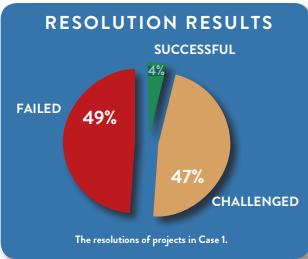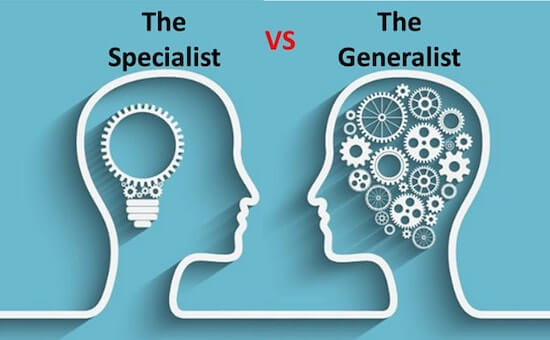How to Build a Great Java Team

Building a formidable Java team requires a strategic approach and nurturing environment. As a project leader, you understand the pivotal role of assembling Java experts, however, the success of your software development endeavors hinges on your Java team’s collective expertise, dedication, and synergy.
Imagine the frustration of encountering recurring bottlenecks in your Java projects. Delays caused by inefficient collaboration, lack of technical expertise, and communication gaps can lead to missed opportunities and strained client relationships.
A subpar Java team extends beyond delayed deliverables: your organization’s reputation, customer satisfaction, and bottom line. To remain competitive in the fast-paced software development landscape, you need a high-performing Java team that consistently exceeds expectations.
This blog post will look at some essential elements of building a Java development team, whether a dedicated in-house team, partnering with a professional Java development company, or hiring freelance Java programmers.
Describing Your Java Development Requirements
Several businesses and IT executives believe their projects are doomed right from the start. In fact, a report by the Standish Group reveals that only 4% of new software applications are successful, while a staggering 49% end up failing.

Image source:- standishgroup.com
To avoid becoming part of these statistics and ensure the success of your Java development endeavors, ask yourself these essential questions from the outset:
- What specific skills should your Java developers possess?
- What are the key aspects and scope of your project that Java developers need to be well-versed in?
- How do you envision the desired outcome of your Java development project in terms of functionality, user experience, and overall success?
- Have you established a budget to ensure efficient resource allocation and avoid unnecessary expenses while hiring Java developers?
- Do you have a preferred development methodology (e.g., Agile, Scrum) that the Java developers should be experienced in?
- Are there any specific project milestones or deadlines that the Java developers need to meet?
You may set the stage for success by proactively answering these questions and clearly outlining your skill requirements, project scope, target outcome, and budget. By integrating a deep understanding of the Java development life cycle, you can ensure that your team is prepared for every phase of the project. When your objectives are aligned with the proper Java developers, communication becomes smooth, efficiency soars, and the chances of project success skyrocket.
Select the approach to build a team
When building a software development team, there are two main approaches to consider: generalists and specialists.

Image source:- tommccallum.com
Generalists have a broad range of skills and knowledge across various technologies, while specialists focus on a specific area of expertise. However, adopting a hybrid approach that integrates both can yield the most effective and well-rounded team.
So to hire a Java development team having a mix of generalists and specialists brings numerous benefits. Generalists provide a holistic understanding of the entire software development process, allowing them to contribute to different aspects of the project. They have a broad knowledge base and can easily adapt to changing requirements.
The hybrid team structure ensures a balance of expertise, promoting collaboration and knowledge sharing. This allows for effective problem-solving and ensures the project is well-supported even if team members leave or are unavailable.
With the combined strengths of generalists and specialists, the Java development team can deliver high-quality code, build complex systems, and effectively maintain them.
Look For critical thinkers
To hire a Java development team requires recognizing the importance of critical thinking. Critical thinkers are individuals who possess the ability to think deeply and offer valuable insights to solve coding problems efficiently.
While a senior team lead may ultimately decide on a solution, it is crucial for every team member to contribute their thoughts. This inclusive approach brings diverse perspectives, fosters innovation, and leads to improved solutions.
These individuals have the capacity to analyze proposed solutions, question their effectiveness, and suggest improvements. They go beyond blindly following the norm and actively contribute to the team’s growth.
Check Technical Skills
Building a top-notch Java development team requires a keen focus on specific technical skills. These skills are the foundation upon which your team will deliver exceptional results. Here are the key technical skills that should be emphasized when Planning to Hire Freelance Java Developer:
- Proficiency in Core Java.
- Expertise in Java frameworks (e.g., Spring, Hibernate).
- Mastery of web development technologies (HTML, CSS, JavaScript, AJAX).
- Strong database management skills.
- Experience with application servers (e.g., Apache Tomcat, JBoss).
- Proficiency in testing and debugging (JUnit, Eclipse).
- Familiarity with version control systems (e.g., Git).
- Understanding of Agile methodologies (Scrum, Kanban).
This is the most important thing you need to do when hiring Java developers is to test their technical skills. You can do this by conducting a coding test or evaluating through a small task. It will give you a good idea of their abilities and whether they are the right fit for your project.
Test knowledge of version
To build a fantastic Java development team, apart from technical skills, it’s important to understand the candidate’s knowledge of a Java version. Here are some reasons why understanding their Java version expertise will help you establish an amazing team:
- Adaptability and Continual Learning: Java is an ever-evolving language, with new versions being released regularly. Developers who keep up with the latest Java versions demonstrate their adaptability and eagerness to stay updated with the industry’s advancements. Their ability to learn and implement new features showcases their dedication to growth and improvement.
- Compatibility with Integration: Every Java version brings its own set of features, improvements, and compatibility requirements. By assessing a developer’s familiarity with the specific versions used in your tech stack, you ensure that they can seamlessly integrate their code with existing systems, minimizing compatibility issues and enhancing overall productivity.
- Efficient Troubleshooting: Different Java versions may have unique bug fixes, performance enhancements, and programming paradigms. A developer who is well-versed in multiple Java versions can leverage this knowledge to troubleshoot issues effectively. Their ability to identify and resolve problems specific to each version ensures a smoother development process and a higher-quality end product.
- Legacy Code Maintenance: Many organizations have legacy systems or applications built on older Java versions. Hiring a developer who possesses experience in these versions enables them to understand and maintain existing codebases efficiently. They can navigate through legacy systems, provide timely updates, and ensure the long-term stability of your software.
- Collaboration and Knowledge Sharing: When team members share a common understanding of Java versions, it promotes effective collaboration and knowledge sharing. Developers can exchange insights, discuss best practices, and collectively contribute to the team’s growth. This collaborative environment fosters innovation, enhances problem-solving capabilities, and creates a strong sense of camaraderie within the team.
Prioritizing a candidate’s Java version expertise during the hiring process ensures that you are choosing individuals who have the requisite abilities to succeed in your specific environment. Their adaptability, compatibility, debugging knowledge, legacy code maintenance experience, and collaborative approach will all add to your development team’s overall success.
Ask About Their Experience
Richard Branson a British business magnate stated, “Hire people who are better than you are, then leave them to get on with it.” This quote highlights the importance of seeking candidates with extensive experience and skills that surpass your own, as they can contribute significantly to the success of your Java development team.
So when building a high-performing team of Java development specialists it requires a thorough evaluation of the candidate’s experience. During the interview process, it is crucial to ask about their background and project involvement to gain insights into their expertise and suitability for your specific requirements.
Asking about candidates’ coding experience provides valuable information about their level of knowledge and proficiency in Java development. Understanding the number of years they have been coding helps assess their mastery of the language.
Furthermore, inquiring about the projects they have worked on allows you to gauge their exposure to different development challenges and their ability to handle diverse project requirements. Look for candidates who have experience in projects similar to yours, as it demonstrates their relevance and adaptability.
Check Communication Skills
Effective communication skills are a crucial factor to consider when hiring Java developers, as it directly impacts the success of a project. Clear and efficient communication ensures that information flows seamlessly between team members, clients, and stakeholders, leading to better understanding, alignment, and ultimately, project success.
Strong communication skills are imperative for a Java team, as it would be working for an offshore client, mostly from the USA and Canada. Strong language skills among Java developers are one important reason for making countries like Romania, the Philippines, and India famous software development outsourcing destinations.
Studies have shown that poor communication is a leading cause of project failure. According to the proof hub, ineffective communication contributes to project failure in 56% of cases. This emphasizes the significance of strong communication skills in mitigating risks and ensuring project objectives are met.
When developers possess excellent communication skills, they can effectively articulate their ideas, requirements, and challenges. They can express their thoughts clearly, ask questions when needed, and actively engage in discussions with other team members. This promotes collaboration, encourages diverse perspectives, and leads to innovative solutions.
Furthermore, effective communication allows developers to interact with clients and stakeholders in a meaningful way. They can gather requirements accurately, provide updates on project progress, and address any concerns or issues promptly. This fosters trust, enhances client satisfaction, and strengthens long-term relationships.
Make Sure They Are a Good Fit for Your Team
“Coming together is a beginning, staying together is progress, and working together is a success.” – Henry Ford
When the process of hiring a Java development team, finding candidates who can seamlessly integrate into your existing team dynamics becomes a critical aspect of the hiring process. The ability to work well with others and possess the right attitude can significantly impact team productivity, collaboration, and ultimately, project success.
According to a study conducted by McKinsey & Company, diverse and inclusive teams outperform their peers by 25% in terms of financial performance. This highlights the importance of assembling a cohesive and collaborative team that can leverage each other’s strengths to drive innovative solutions.
When interviewing Java developers, here are some additional questions to assess their compatibility with your team:
- Tell us about a time when you faced challenges while collaborating with team members. How did you address and overcome those challenges?
- Can you share an example of a successful team project you were involved in?
- How do you handle disagreements or conflicting ideas within a team?
Remember, fostering a harmonious team environment goes beyond technical prowess. It is the synergy of diverse skills, shared values, and a collective drive toward success that propels teams to achieve exceptional results. By asking these additional questions, you can ensure that your Java development team is not only technically proficient but also aligned in their collaborative mindset and team spirit.
Wrapping up
Here we offered some valuable tips that you should know before hiring Java developers. By following these tips, you can be sure that you will find the best candidates for your project. You can try to align each Java development team-building model with your project needs and shortlist the one that you feel would best work for you.
At Finoit Technologies, we are a trusted custom software development agency known for delivering exceptional services. With our team of experienced Java developers, we provide top-notch solutions tailored to your unique requirements. Our expertise spans various industries, and we are committed to delivering high-quality results. Connect with our development experts today and let us bring your Java project to life with our expertise and dedication.
FAQ
What makes a good programming team?
There are several characteristics of a good programming team, and one of the most important things you need for a good programming team is skilled developers. It is essential to have a team that can work together and communicate because it’s an integral part of a good finish.
What makes up a Java development team?
A Java development team typically consists of a lead developer, several junior developers, and a project manager.
How do you grow a development team?
You can grow a development team by hiring new developers and training them. You can also create a development team by promoting existing employees to higher positions.
What skills are needed for a Java developer?
Some essential skills for Java developers include:
- Coding
- Problem-solving
- Communication
- Teamwork

